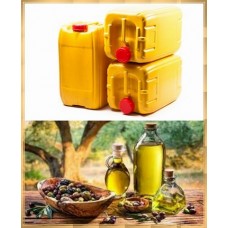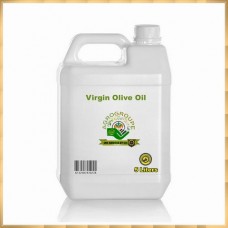Olive Oil
Olive Oil, the most consumed monounsaturated
fat in the world, has reigned in the Mediterranean basin for thousands of
years. Not only is its taste excellent, but it has also been shown that a diet
based on olive oil is directly related to a prolonged life expectancy and a
reduction in diseases largely linked to bad Western culinary habits. . Olive
oil has always been recognized for the benefits it provides in a very wide
range of ailments and symptoms.
Today, its composition tells us about its
effectiveness in the fight against cardiovascular diseases. Its richness in
monounsaturated fatty acids (56 to 84%) helps to reduce the level of
"bad" cholesterol in the blood and to maintain the level of
"good" cholesterol. Olive oil also contains a good number of
polyunsaturated essential fatty acids (4 to 16%). Since these fatty acids
cannot be synthesized by the human body, they must be supplied by the diet, and
olive oil therefore intervenes significantly in the balance of the metabolism.
It contains only a small amount of saturated fatty acids (8 to 20%).
Olive oil is also rich in anti-oxidants,
such as vitamin E. This vitamin plays an essential role in the protection of
cell membranes, which gives it a beneficial responsibility against aging of the
skin.
Anti-inflammatory, it reconstitutes tissue
damaged as a result of burns and skin wounds.
It also helps fight against the effects of
pollution in the body and is particularly indicated for smokers.
It stimulates sexual capacities, slows down
the destruction of red blood cells and the formation of possible blood clots.
It strengthens glandular functions.
In addition to nutritional virtues, olive
oil contains an anti-inflammatory agent.
Researchers have isolated one of its
components, oleocanthal, which works by inhibiting the activity of an enzyme,
cyclooxygenase, like ibuprofen. Regular consumption of olive oil would not
relieve a migraine, but would have long-term beneficial effects, such as
reducing the risk of cancer which is no longer to be proven.
What is a "portion" of oil worth?
|
weight
/ volume |
14 g (15 ml) |
|
Calories |
121 |
|
Protein |
0,0 g |
|
Carbohydrates |
0,0 g |
|
Fat: |
13,7 g |
|
·
saturated |
1,8 g |
|
·
monounsaturated |
10,1 g |
|
·
polyunsaturated |
1,4 g |
|
·
omega-3* |
0,1 g |
|
Cholesterol |
0 g |
|
Dietary fiber |
0 g |
Source: Health Canada. Canadian Nutrient File, 2005. * EPA, DHA and alpha-linolenic acidid
Refine Search
Cardboard box 2x500ml of Virgin Olive Oil
Cardboard box containing two glass bottles of 500 ml of virgin olive oil whose free acidity, express..
950DZD Ex Tax: 950DZD
Wooden box 2x500ml of Virgin Olive Oil
Wooden box containing two glass bottles of 500 ml of virgin olive oil whose free acidity, expressed ..
1,200DZD Ex Tax: 1,200DZD
Glass Bottle 500ml of Virgin Olive Oil
Glass bottle of 500 ml of virgin olive oil whose free acidity, expressed as oleic acid, is at most 3..
400DZD Ex Tax: 400DZD
Virgin Olive Oil Bulk
Blady extra virgin olive oil is an Extraction of the Chemllal variety from Lower Kabylia of highest..
15,000DZD Ex Tax: 15,000DZD
Virgin Olive Oil Bulk
Blady extra virgin olive oil is an Extraction of the Chemllal variety from Lower Kabylia of hig..
3,750DZD Ex Tax: 3,750DZD
























